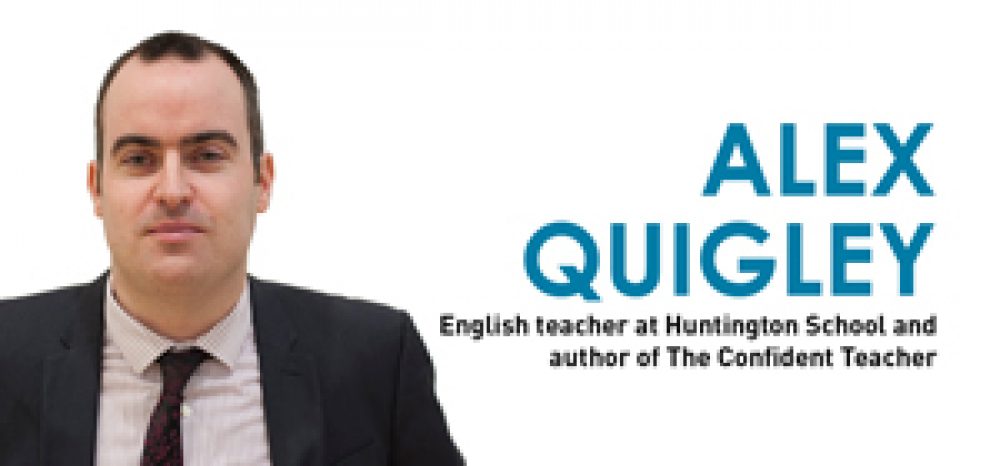Nearly half of teachers leave the profession within the first five years of teaching. Depressing isn’t it? Teachers are being worn perilously thin, so there is no doubt that politicians and policy makers need to work hard to recover the confidence of the teaching profession.
I have some ideas that, in teacherly fashion, I’ve boiled down into an easy abbreviation: TNT. No – not the incendiary stuff of the Wile E. Coyote cartoons, although sometimes that feels like how policy is implemented in education. TNT stands for Time ‘n Training.
I will start with time. How about politicians reflect on this nugget about the state of education in Shanghai*: on average, teachers teach two 35 minute lessons a day, with the rest of their time given over to planning, research and feedback. It is quite shocking isn’t it? Though the context is vastly different, the principle of investing in time for teachers to get better remains. It is a good starting point for policy discussion.
A clear concrete policy proposal is this: take curriculum changes out of the hands of transitory politicians and give it to an independent body. Then place a ten-year moratorium or more on significant curriculum change. This will give us some vital time to develop and train teachers. Perhaps this is the role for the much vaunted College of Teaching?
Let’s take curriculum changes out of the hands of transitory politicians
Given greater certainty, teachers can have the confidence to plan and learn the new more challenging curriculum and qualifications. The evidence – the OECD TALIS survey is helpful in this regard – shows that when teachers undertake such collaborative planning time, their confidence in their ability to affect student outcomes grows.
Let’s then corral the best minds on assessment and curriculum and help them to help us provide the support tools for teachers to better understand the new curriculum and assessment and respond to the significant changes at every phase. It will take some investment, but nothing will be more costly than the botched implementation of our new curriculum.
Another policy recommendation that would ultimately act as a time-saver is to ask schools to publish their marking/feedback policies online. How many hours are wasted of precious teacher time on ineffective and laborious marking practices?
School transparency and sharing is vital and we are all likely reinventing similar wheels. The removal of KS3 levels is a case in point. My policy recommendation is this: if we are going to have thirty-five national maths hubs to spread the good word about mathematics in the system, how about having an equivalent number of ‘curriculum and assessment hubs’ to help save massive time and angst in schools as we respond to the new assessment regime?
Of course, this is all about the high quality training for teachers. When you read the latest government white paper, there were positive sounds regarding improving continuous teacher training, but they were drowned out by the calamitous noise created by the forced academisation plan.
We need sustained training woven into the fabric of our career development profile
The draft standard for teachers’ professional development (CPD), relatively hidden away, promises something of a guide for schools to hold fast to in difficult times. This new CPD standard needs the full backing of government, with financial investment, so that our school-led system has the tools needed to drive up standards in CPD and share best practice case studies and more.
We need sustained training woven into the fabric of our career development profile. It needs to provide an impetus to keep expert teachers in the classroom.
Our existing initial teacher training model – one year, or even less, and you are ‘done’ is clearly insufficient. Initial training should span across at least three years, with clear career phases beyond that, with the potential for ‘chartered’ status as we train and progress. If nearly half of our teachers leave the profession in the first five years, we need a better plan for progression during this crucial phase. The investment required would prove a fraction of the cost.
With a policy focus on time and training for teachers, bolstered by support tools and investment, policy makers could recover the confidence of our great profession.
*As quoted by Dr Mark Boylan of Sheffield Hallam University (‘Longitudinal evaluation for the England-China maths education innovation’ project), speaking at the Using STEM Research conference on 20 May 2016.
Alex Quigley is an English teacher at Huntington School, and the author of ‘The Confident Teacher’







Great article, Alex. Can you point me in the direction of the draft CPD standards? They’re completely hidden from me!